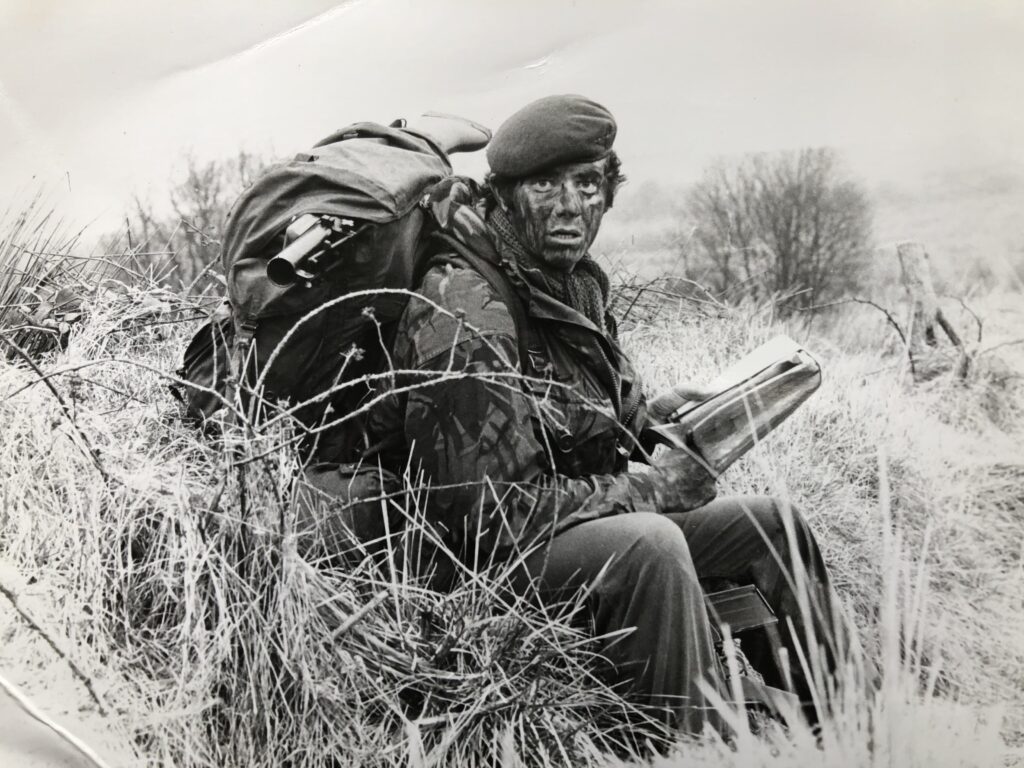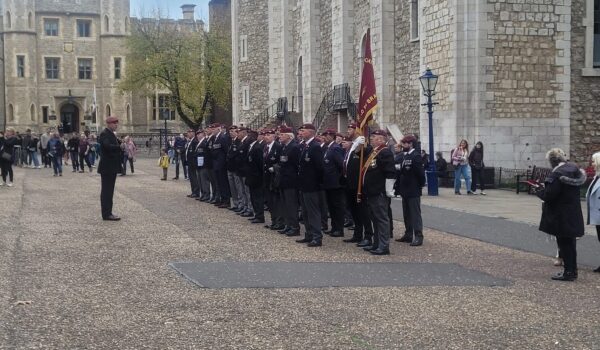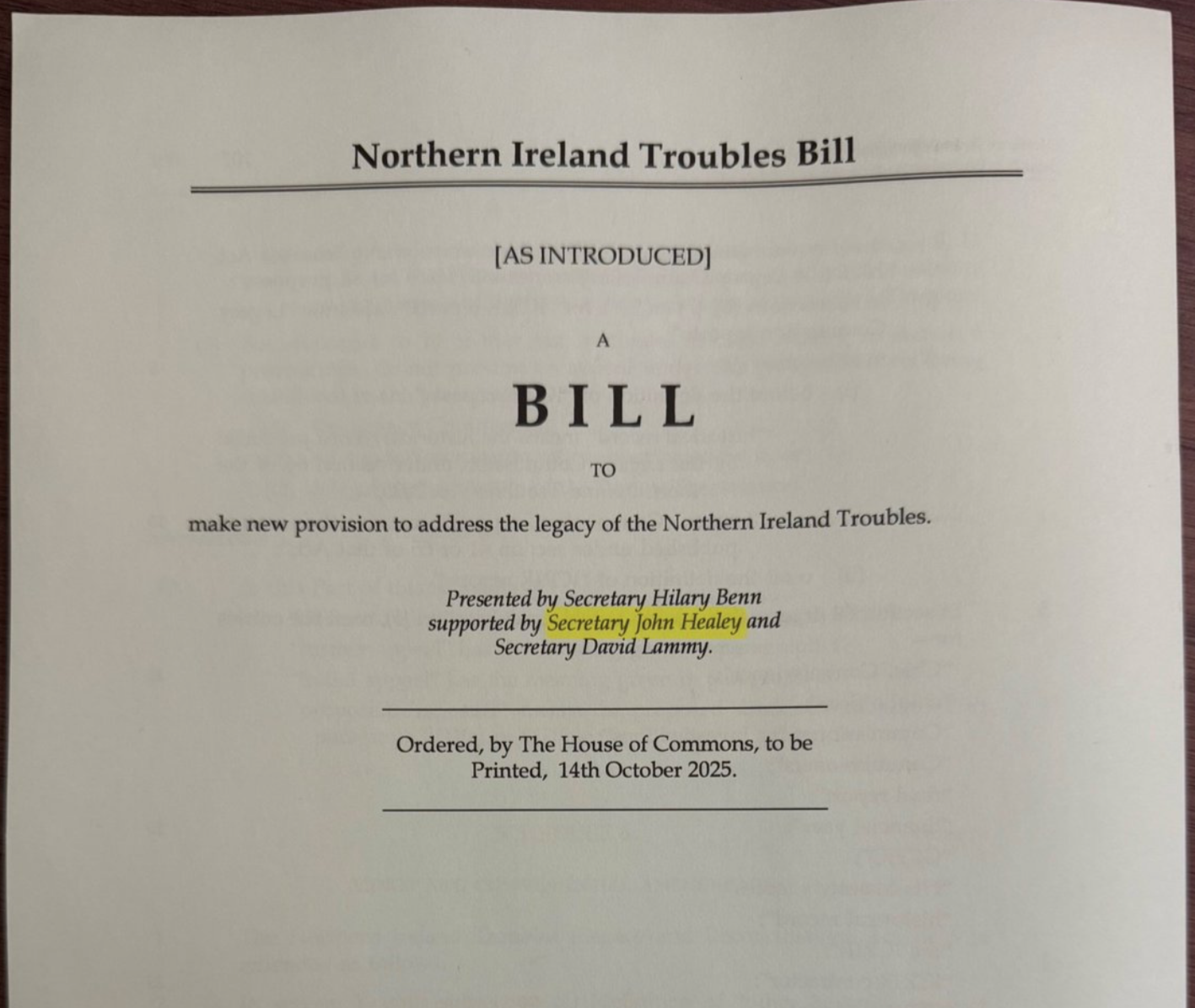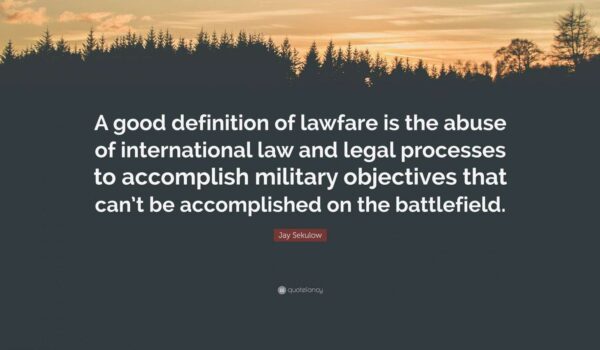REPEALING THE NORTHERN IRELAND LEGACY ACT…
- Posted on 20 Aug 2025
- 34 min read
By Lieutenant Colonel Simon Barry (Ret’d) — Late PARA
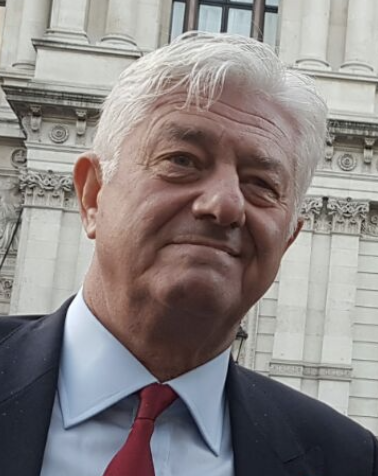
Simon Barry was commissioned into The 3rd Battalion The Parachute Regiment as a 2nd Lieutenant in 1974. He had previously served as a Lance Corporal in the Regiment’s 10th Battalion. His service over the next two and a half decades with the Regiment’s three regular battalions, amongst other appointments, would be punctuated by multiple tours of Northern Ireland. In 1985, Simon Barry was involved in the formation of the Pathfinder Platoon and was its first commander. In 1997, he returned to 10 PARA as Commanding Officer before a posting back to Regimental HQ PARA in 2000 and thence to the MoD’s Directorate of Air Operations in 2001.
Editorial Foreword by Mark Briggs, Technical Editor
It is not often that HERMES comments on political affairs; generally, we maintain an apolitical stance. However, current circumstance will, to a greater or lesser, extent impact upon many serving soldiers and veteran alike. The Northern Ireland Troubles (Legacy and Reconciliation) Act 2023 is, as its name suggests, about the de facto war waged by successive British Government(s) on British and foreign soil against violent terrorists, the majority of whom described themselves as Irish republicans. Repeal of the Act without putting anything substantive in its place not only opens the door to endless judicial and litigious process related to the Ulster Troubles but establishes a precedent for similar ‘lawfare’ by financially and ideologically motivated plaintiffs and activist lawyers against British service and security forces personnel who served in other places from the 1950s to the present, fighting other enemies against whom the Government of the day had deployed them. Who better to comment than an informed observer like Lieutenant Colonel Simon Barry from a position of fact and real world experience?
LEGACY by Lt Col Simon Barry (Ret’d)
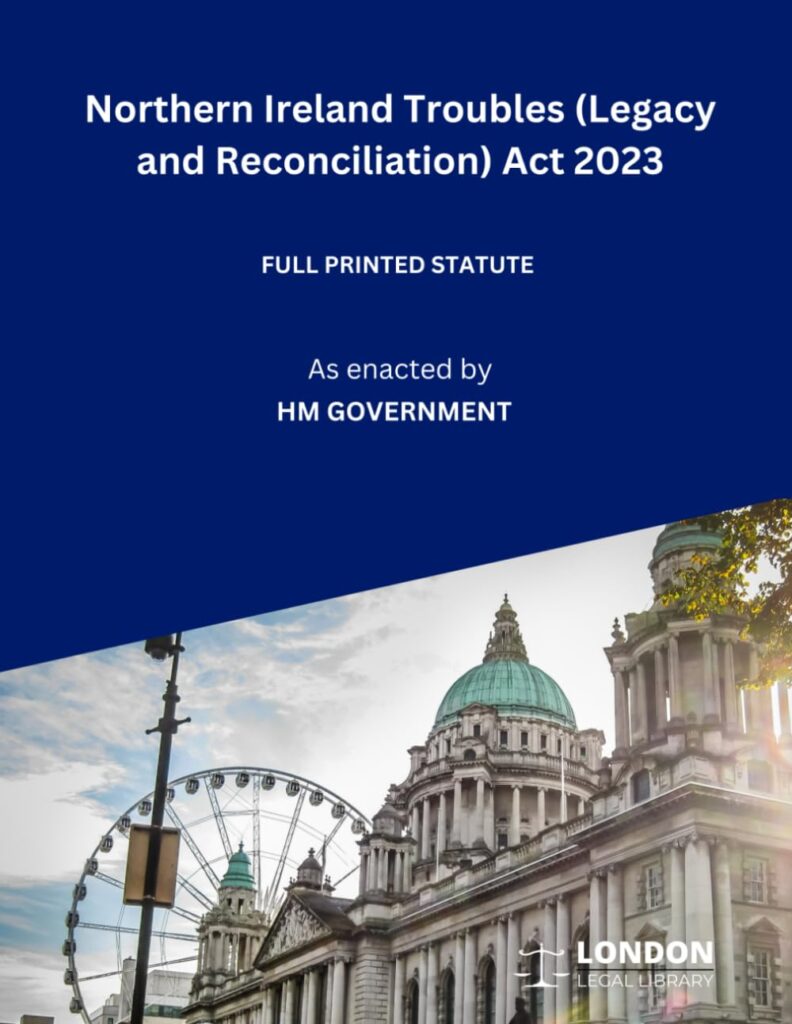
A Parliament website petition opposing changes to the Legacy Act garnered enough signatures within a matter of weeks to trigger a Westminster Hall debate. The repeal of the Northern Ireland Troubles (Legacy and Reconciliation) Act 2023 was one of Sir Keir Starmer’s pre-election promises to Sinn Fein and has far wider implications for the military and the country than many seem to realise.
The debate was interesting as it allowed the participants to show whose side they were on. Unionist, Conservative and Reform were behind the veterans, the Lib Dems contributed little, those former armed forces Labour MPs — with little real Northern Ireland-related experience — attempted unconvincingly to support the government line, with one accusing veterans of being naive. Yes, this MP really said that. The Secretary of State was no more inspiring either, on speaking briefly at the end without answering any of the questions raised in the debate and with no opportunity for questions. The overall result was the question of why is the government was doing this? And who benefits?
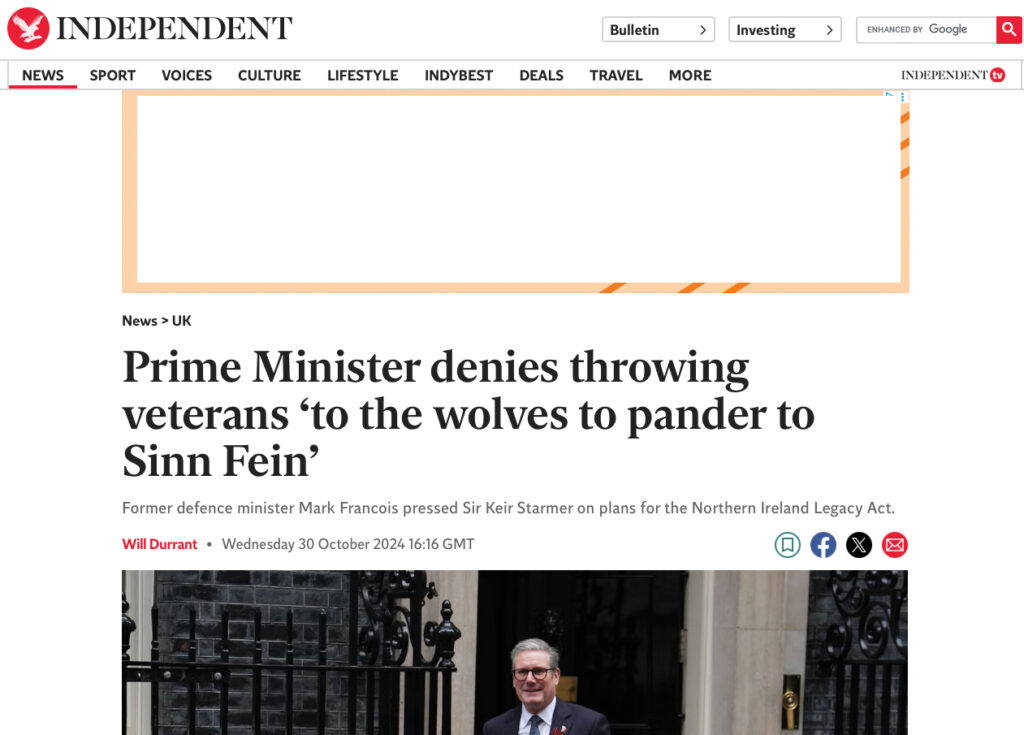
Contrary to the Government’s claims, all the national veteran commissioners are on the record as opposing this repeal. The MPs on the Government benches who are military veterans have gone AWOL, though we did have some faint hope in our own Dan Jarvis, the Security Minister and former Parachute Regiment officer. So far, he has been studiously quiet, though I have written to him, as well as Al Carns and the Prime Minister. In their terminology, these “optics are not good” for them. So much for ‘protecting our brave servicemen’ — they won’t even engage.
However, after reading this article, Veterans Minister Al Carns DSO OBE MC MP wrote the following comment to Hermes Technical Editor Mark Briggs: “As the Veterans Mininister, I am aware of the general feeling within the veterans’ community. I have served in Northern Ireland, I have spoken to all the groups involved and I will ensure their views are taken into consideration. We will fight to ensure protections for veterans are put in place.”.
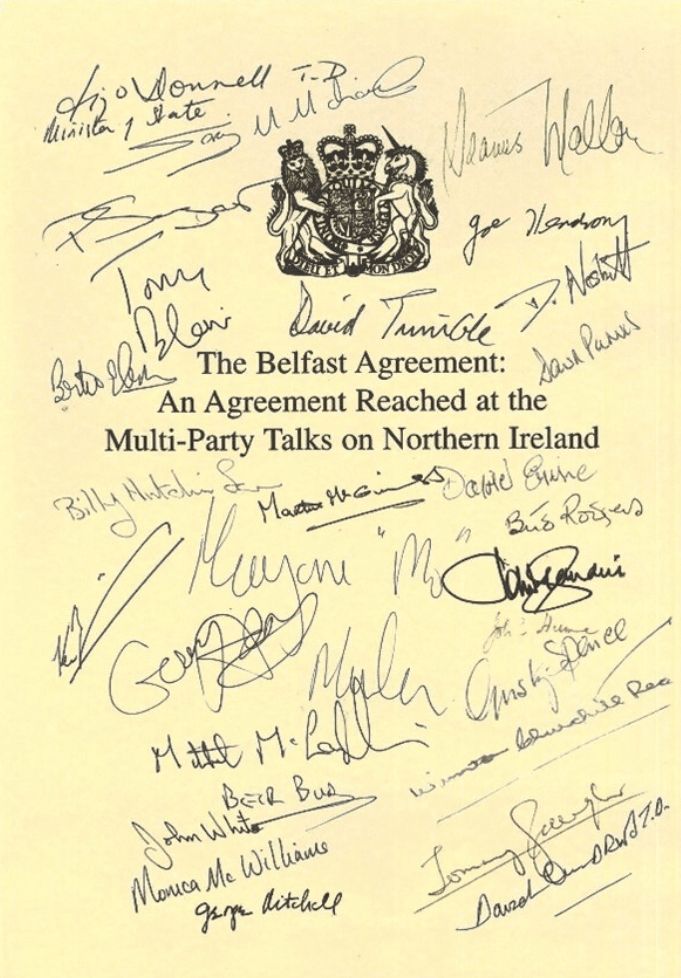
It is easy to forget, and many may be too young to know, how we ended up here in the first place: The Police and Army defeated the IRA. The terrorists did not come to the table out of a belated sense of morality and atonement for their crimes and the misery they caused. They came because they were beaten, and they knew it. The security forces paved the way and set the conditions for peace.
The Blair government, through then-Prime Minister Tony Blair’s Chief of Staff Jonathan Powell and the civil servants in the Northern Ireland Office (NIO), which subsequently took the lead. They signed the Good Friday Agreement after which the IRA bombed Moira, Banbridge, Portadown and finally Omagh to wring further concessions from a UK Government desperate for a success. The Omagh atrocity was the deadliest single incident during the Troubles.
The IRA and their political wing Sinn Féin were appeased with pardons and comfort letters. That should be where this process of appeasement stops. They cannot be permitted to rewrite history to portray themselves as the moral equivalent of the security forces; that is simply repulsive and morally wrong. But that is one of the very real side-effects of this repeal. Most victims’ families, the vast majority in the conflict, will be sickened by this prospect.
The Government claims the Act is unlawful because of the view of a judge. This is arrant nonsense and deceitful. Parliament makes laws. It is the basis of our sovereignty. Judges may opine but that is all. The Attorney General could have, indeed should have, returned the issue to the Supreme Court, but for some reason chose not to do so. Labour stated in its election manifesto that it wanted to repeal the Act and is now in the process of doing so without thinking through what this means — and solely based on ‘discussions’. The Government is now floundering about trying to create some semblance of ‘balance’ within an inherently unbalanced process. One is forced to wonder who benefits.
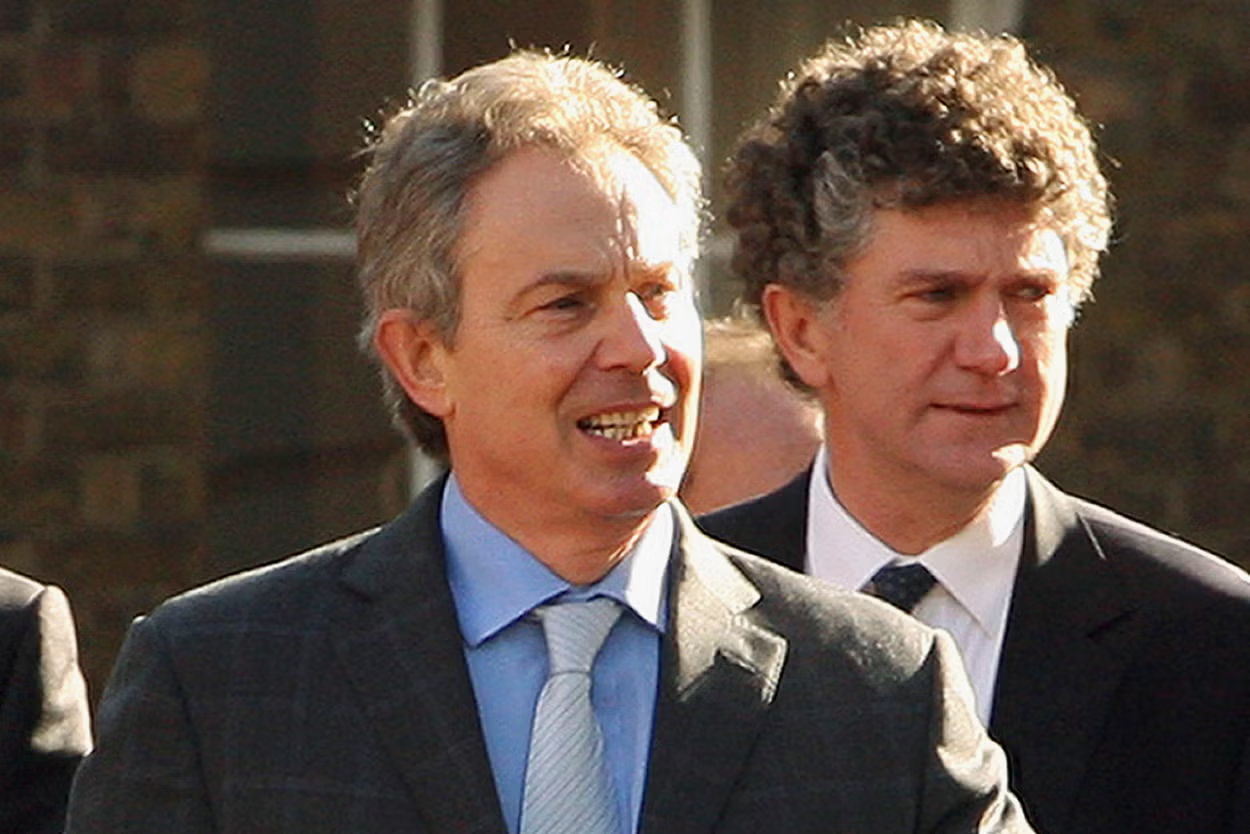
The line that is often trotted out by way of justification is that repeal of this Act is the only way to bring justice or closure to families and victims. This again is arrant nonsense and does not stand the scrutiny of reality. Any attempt at explaining their position is met with derision and incredulity. None of it makes any sense.
Those wise men of the Royal Ulster Constabulary (RUC) — since rebranded as the Police Service of Northern Ireland — who lived through the problems in Northern Ireland all their lives and bravely stood up to murderous opponents without any let up in the threat, were initially against the original 2023 Legacy Act itself. They felt that it would hamper efforts to bring justice through convictions of the terrorists. However, they eventually concluded that to be an extremely unlikely outcome, and therefore, reluctantly, decided to support the 2023 Legacy Act as the best way of bringing the whole saga to a close, twenty-five years after it was supposed to have been brought to a close by the 1998 Belfast (Good Friday) Agreement.
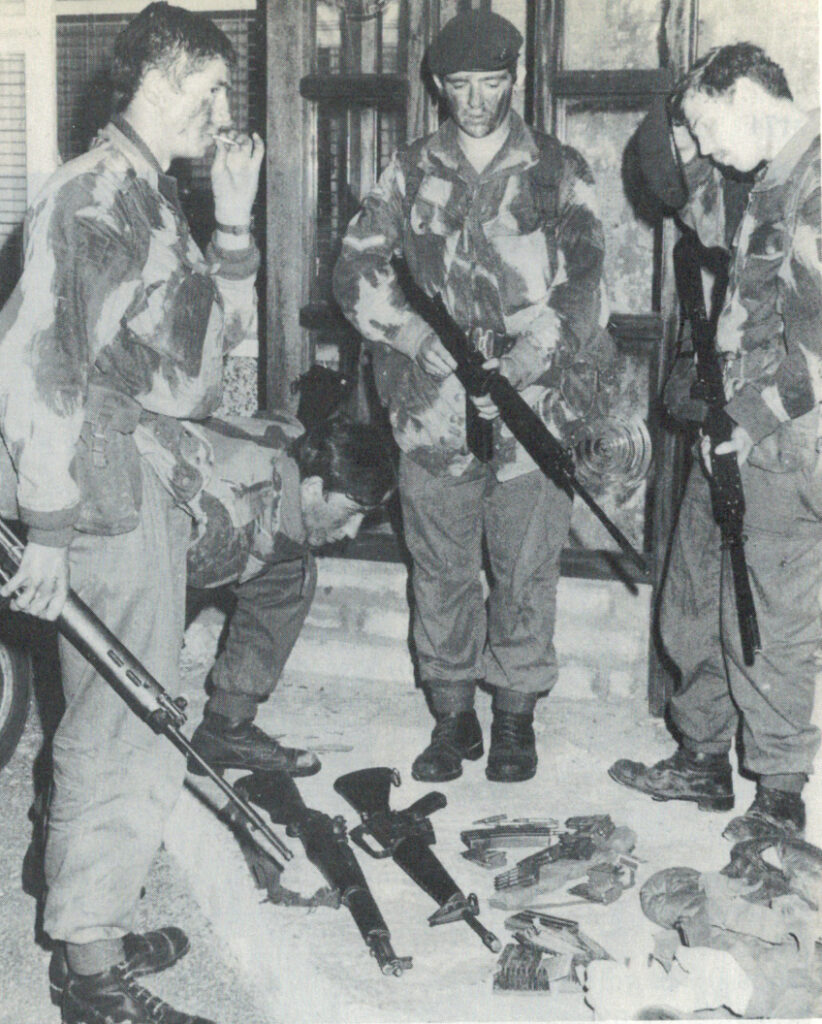
The imbalance in the process was recently exposed in the Belfast Newsletter, where it reported that soldiers and policemen were over fifty times more likely to be investigated than terrorists. Many of the ‘families’ referred to by the political class are RUC families. They now understand that they will get no closure — and neither will the families of soldiers. This raises the question of who stands to benefit from the repeal, directly and indirectly.
The Army did not ask to go to Northern Ireland. British soldiers were deployed there by Harold Wilson’s Labour government to protect Catholics from Loyalist extremists and to prevent a looming civil war. The RUC had been overwhelmed and the Army had to hold the line while the RUC reorganised. It is to the credit of that over-stressed police force that throughout the thirty-year conflict their morale never cracked. This reorganisation succeeded and greater sectarian bloodshed was prevented. Their courage was collectively recognised in 2000 by the award of the George Cross. But we must remember that for every innocent life taken by the terrorists, there were many more lives ruined through broken bodies and minds. The terrorists and their sympathisers in the government and the judiciary did not care and still do not.
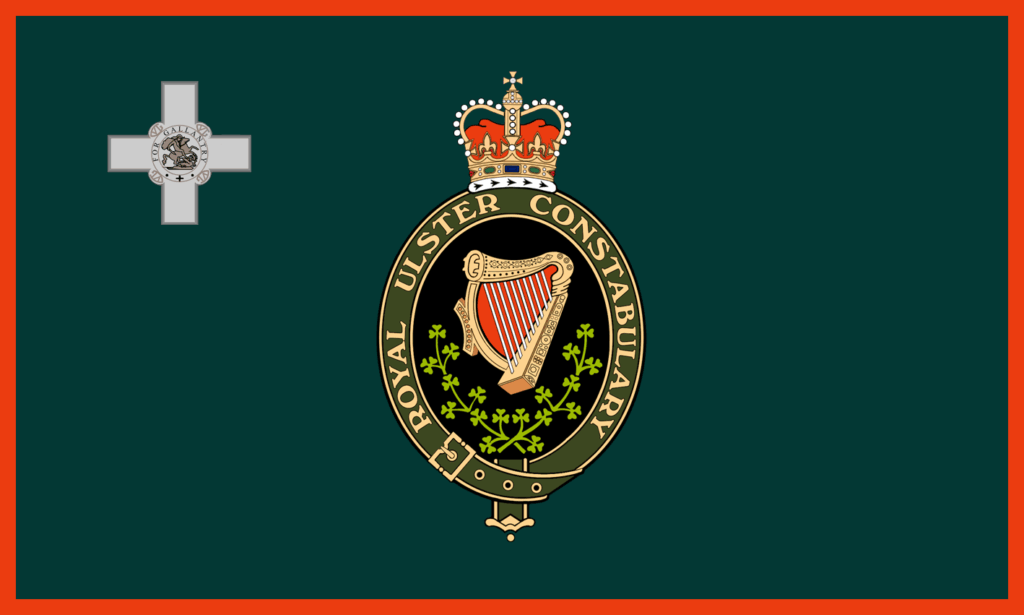
In 1992 the IRA blew up the Northern Ireland Forensic Science Laboratories in Belfast. Conveniently, this destroyed much of the forensic evidence upon which any future terrorist prosecutions would rely. Add to this the fact that no terrorist, or associate, is going to implicate themselves or anyone else — so much for “truth and reconciliation” — and you begin to see the wisdom of the RUC’s change of heart. They also knew that the government of the Republic of Ireland has always been less than supportive of efforts to counter the IRA and its murderous cross border activities.
The brave efforts of many Irish security forces personnel notwithstanding, successive Irish governments were less than supportive of efforts to counter the IRA and its murderous cross border activities. The IRA used the Irish Republic as an active sanctuary, training location, bomb making facility, refuge for the bombers and gunmen and, in the end, a place to commit torture and bury the bodies.
So, it also worth asking if this repeal, by helping the IRA to launder its reputation, also helps the Irish Republic achieve a similar outcome in this context, drawing a veil over its shameful failure to deal seriously with renegades who openly considered themselves as still at war with the Dublin government despite the Irish Free State’s victory over the IRA in May 1923.
It was clear from the utterances of some of the Government MPs during the debate that many people do not really know what it was like in the ‘seventies and ‘eighties. This is understandable, but it is a cause for concern when one considers that most of the civil servants in the NIO have absolutely no idea what it was about and what it was like.
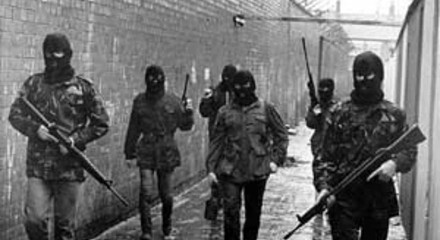
A look at any British Army battalion’s log sheets from that time will show shootings and gun battles every night, along with all the riots and aggro that provided a scene-setter.
Of course, the IRA kept no similar records. People think soldiers were cheap police replacements, when they were actually shoulder-to-shoulder with the police fighting the most prolific mass murderers in modern British history.
We trained hard before we went and then had the pre-deployment pep talk from the Commanding Officer. You would look around at a group of sound men, hoping they would all make it back, but knowing the chance of that was slim to non-existent. But they went and did their duty, preventing violence and saving lives.
The statistics of the killings and by whom are compelling. Of the 3,720 people killed during the Ulster Troubles, Republican terrorists murdered 2,152. Loyalist terrorists murdered 1,112. The security forces killed 367. The Army was responsible for 302 deaths.The RUC was responsible for 51 deaths. The UDR/RIR killed eight. The Army lost 709. The Police lost 303. 395 Republican terrorists were killed. 167 Loyalist terrorists were killed. Eighty-nine people lost their lives under other circumstances. The source is Lost Lives by McKittrick et al, Mainstream Publishing, Edinburgh & London 2012. Try as they may, the Republican killers and their shills cannot hide the fact that they did most of the killing.
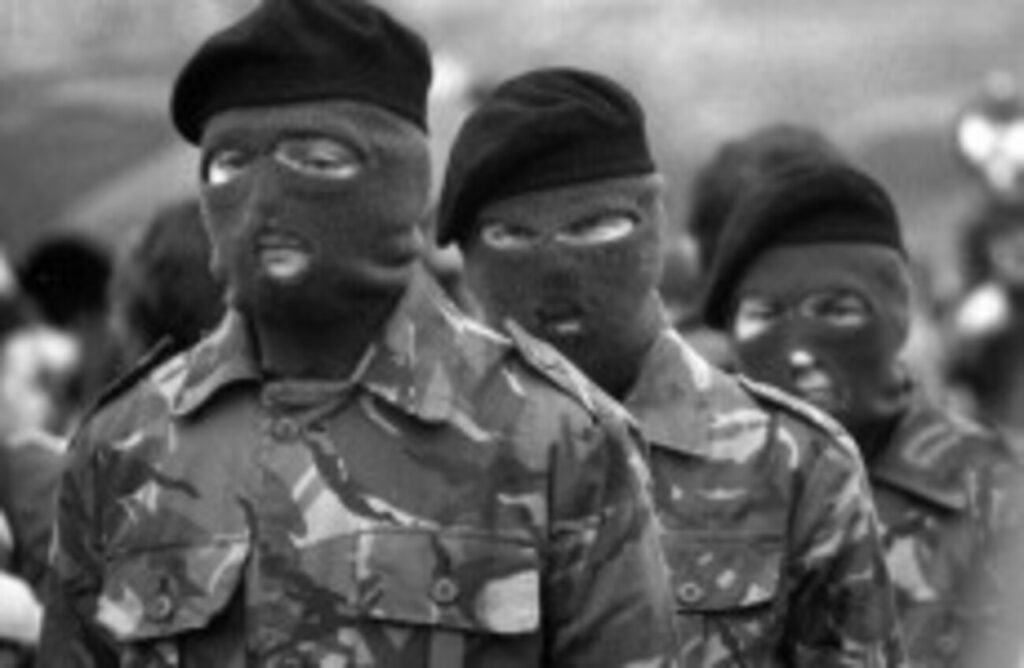
Let us take a closer look at the killings. The Republican terrorists certainly targeted the Police and Army whom they wanted to force out so that they could gain and abuse power. They failed. Several psychopaths amongst them simply enjoyed killing and widened their target scope to include women and children. Their largest mass shooting was Kingsmills in 1976, where ten innocent, uninvolved workmen were lined up and gunned down by the roadside by IRA gunmen.
The IRA’s largest bombing mass murder was Omagh in 1998 after the Good Friday Agreement was signed. Twenty-nine perfectly innocent people plus two unborn — perfectly viable and due to be born the following day — twins – were slaughtered by a bomb brought from across the border, with over 200 injured, many seriously. They were murdered to exert pressure on the British Government. No one has been convicted for either of these crimes and it is very unlikely that anyone ever will be. Once again, the question of who, precisely, benefits from this repeal arises.
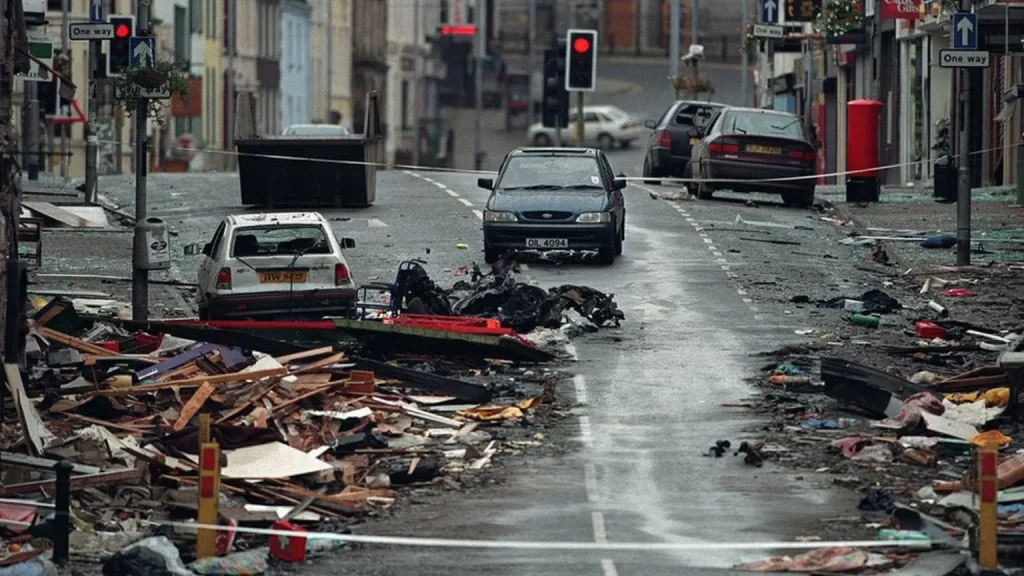
Meanwhile, there has been much chatter about ‘The Law’. Who benefits from this use of ‘The Law’? Lawyers certainly do. Hundreds of millions of pounds of taxpayers’ money have been spent on inquiries and prosecutions that have resulted in absolutely no terrorist convictions. Unless stopped, this gravy train will continue to leach money from the Ulster budgets that could arguably be spent on something that would produce a better return.
There is a tendency in government, especially governments padded with professional human rights lawyers, to take refuge behind lawyers and the law. Yet, the desire of those whom they govern is fairly clear: people are not interested in arcane legal waffle, they just want justice. There is little of that on the horizon, merely vague, incomprehensible waffle about ‘fairness and justice’ without explaining, again, who exactly stands to benefit.
Let us take the Clonoe Inquest for instance. The judge acting as coroner ruled that the use of force in 1992 by Special Air Service soldiers against a truck carrying four IRA gunmen heavily armed with Kalashnikov assault rifles, a 7.62 mm GPMG (General Purpose Machine Gun) and a 12.7 mm DShK heavy machine gun with armour-piercing ammunition, was unlawful under ECHR rules. Did he really think that the SAS should act in the same conciliatory manner as social workers whilst revealing themselves to heavily-armed terrorists hell bent on murder?
Turning to the Westminster Hall debate and Hilary Benn, the Secretary of State for Northern Ireland. It should be noted that his father, Tony Benn, was an advocate of a united Ireland despite the wishes of the majority in Ulster. Benn Senior also naively believed that United Nations forces should be mobilised for peacekeeping duties in Northern Ireland. A look at the UN’s woeful record in Africa in the 1960s and 1970s — and, later, Eastern Europe —demonstrates little understanding of reality.
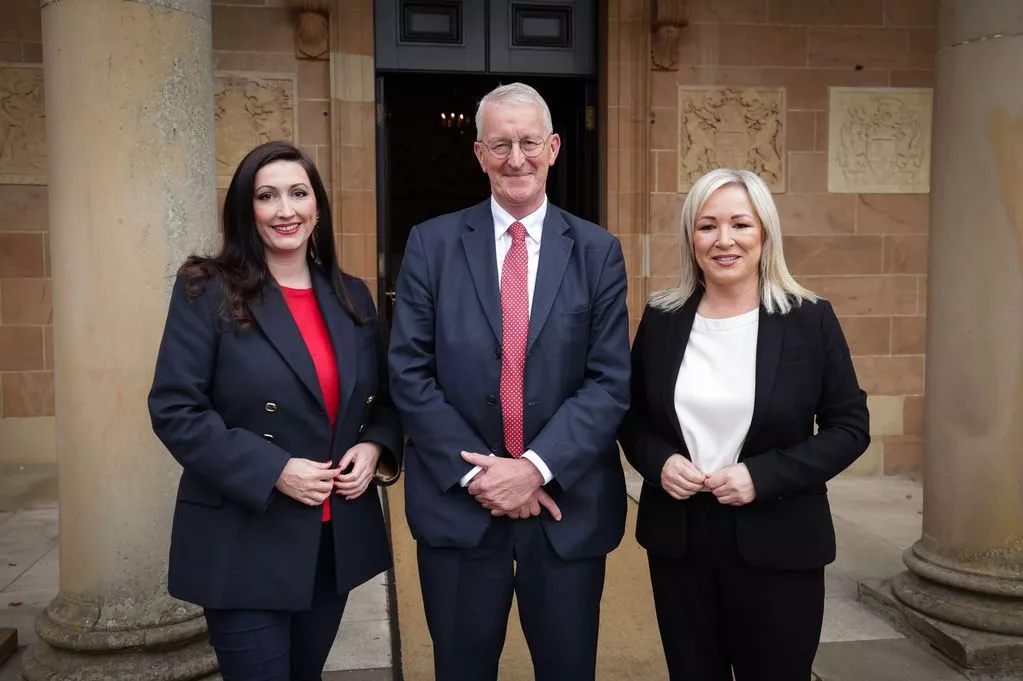
One must wonder what influence all that palpable nonsense had upon the young Hilary Benn. His experience before cabinet office was with trade unions and local councils, which, it can be argued, is not exactly the best preparation for dealing with brutal terrorists and their sympathisers, who have spent every day since their defeat trying to recover their position and to convince the World that they won their war, aided and abetted by lazy and unimaginative civil servants in the NIO and the Home Office.
The July 14th debate laid bare the naiveté of the Labour MPs. Not only did they stand and talk about something that they did not really understand but they also failed to realise the effects of what they are doing. The Labour party is historically the party of the British working class. Over ninety percent of British veterans are from that demographic. The veteran community in the United Kingdom is currently estimated to number more than two million. This is a significant constituency. Put another way, this is a lot of voters to let down. The approach is certainly divisive, demonstrating an unjustifiable bias towards one constituency for the benefit of another but the arithmetic should be compelling to those with narrow majorities.
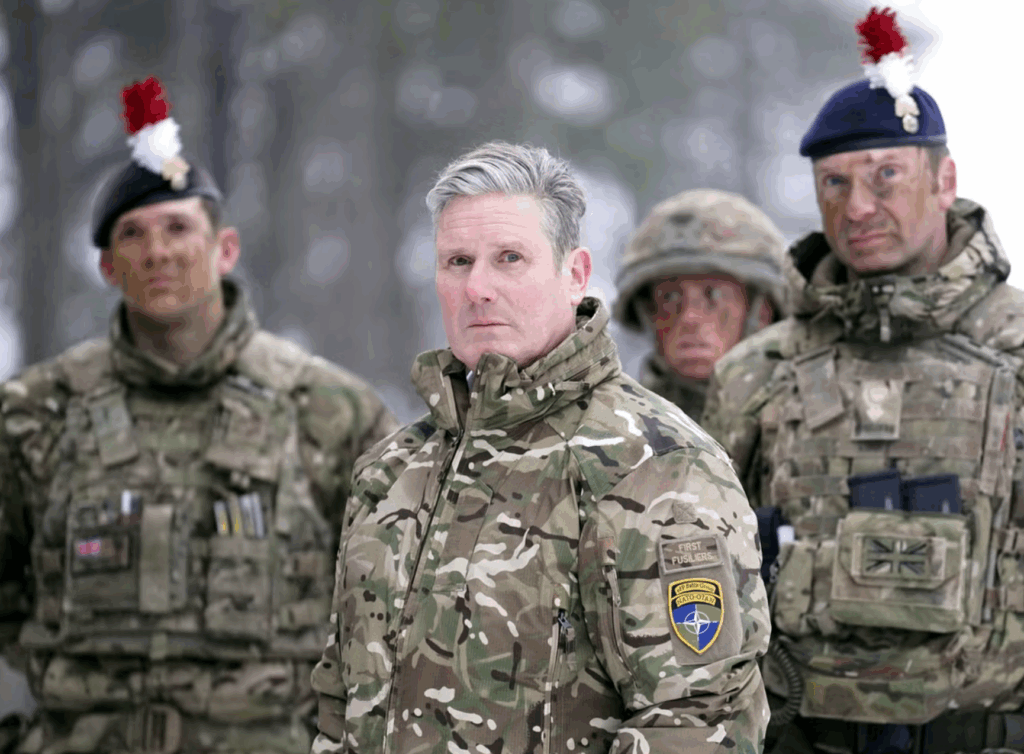
Moving up the chain of command to prime ministers. Tony Blair rejoiced in his photo opportunities with the troops in Macedonia, Kosovo, Sierra Leone, Afghanistan and Iraq. The current PM Sir Keir Starmer, like his Defence Secretary, does likewise but goes further by dressing up in combat kit. One is left to wonder if this cuts any ice with the British public?
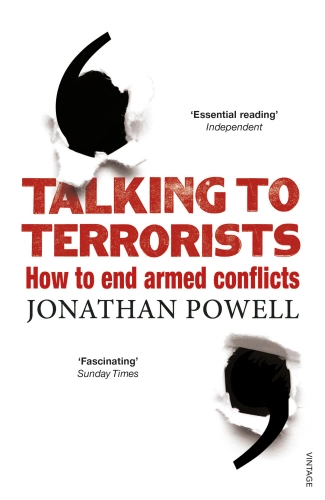
If we take the view that military peacekeeping missions almost always end in violence and firefights, the Secretary of State for Defence is again talking about committing British troops to conflict. Our allies, in France and the US for instance, are astounded at what is happening to British soldiers. The debilitating effect on Tier One Special Forces alone is of particular concern. If, by its actions, the British Government loses the trust of its soldiers, how can they expect allies to trust them? It is hard to strut the world stage if your armed forces have little faith in themselves or their Government.
There is also a thread running from the past to the present and into the future: Jonathan Powell. A man who invited two members of the IRA Army Council to his wedding party is now the National Security Adviser. Powell was plonked into the post by the PM who deselected a Royal Marine general who had just been appointed. Powell is a man who mastered appeasement through releases, pardons and comfort letters. Mr Powell published a book about it in 2014. Is this really who we need as our National Security Adviser?
The Northern Ireland Troubles (Legacy and Reconciliation) Act 2023 is, as its name suggests, about the de facto war waged by successive British governments on British and foreign soil against violent terrorists, the majority of whom described themselves as Irish republicans. Repeal of the Act without putting anything substantive in its place not only opens the door to endless judicial and litigious process related to the Ulster Troubles but establishes a precedent for similar ‘lawfare’ by financially and ideologically motivated plaintiffs against British service and security forces personnel who served in other places from the 1950s to the present fighting other enemies against whom the governments of the day deployed them.
Although this proposed repeal is clearly a political act against soldiers, it is important for veterans — and serving soldiers — to remain apolitical. We own the moral high ground. Soldiers do not want sympathy and tears. We want to be left alone after our duty is done and we want our successors to be able to function as effectively as we did in our day and with the support of the politicians who put us in harm’s way to begin with — which we believed that we once had.
To conclude, the repeal of the Act leaves so many unanswered questions. The most important of these questions probably concerns the long-term ramifications for the defence and security of the United Kingdom.
